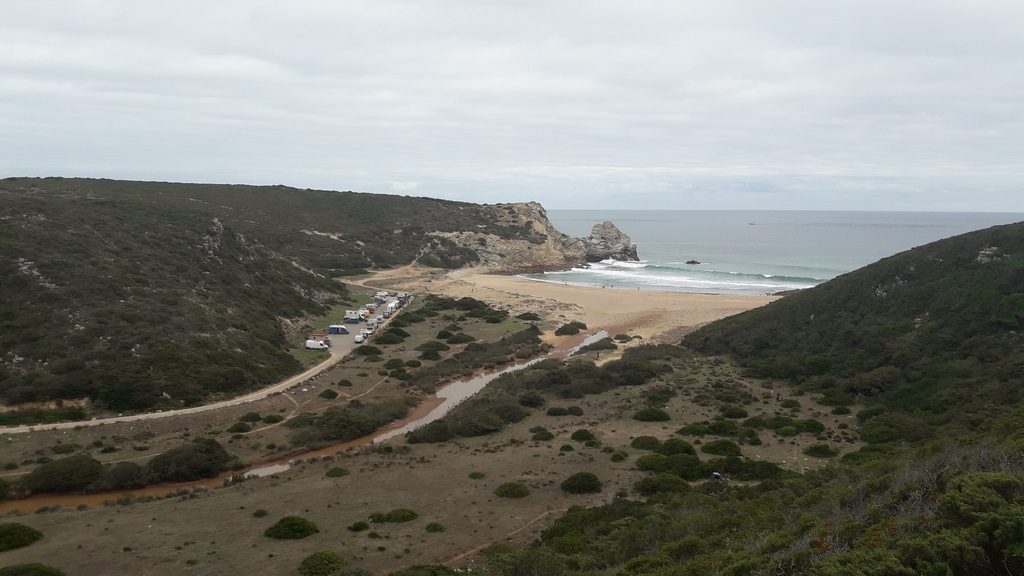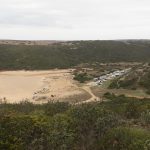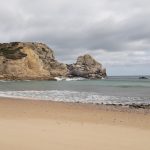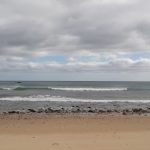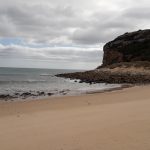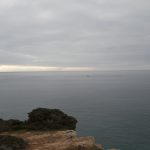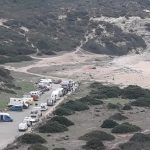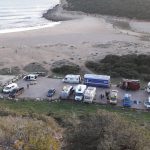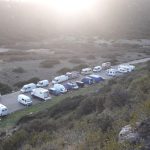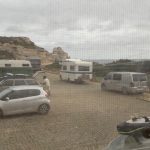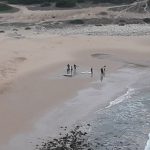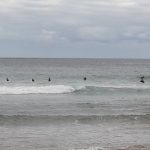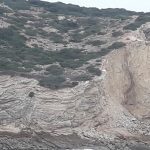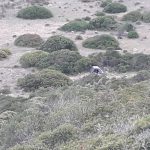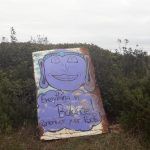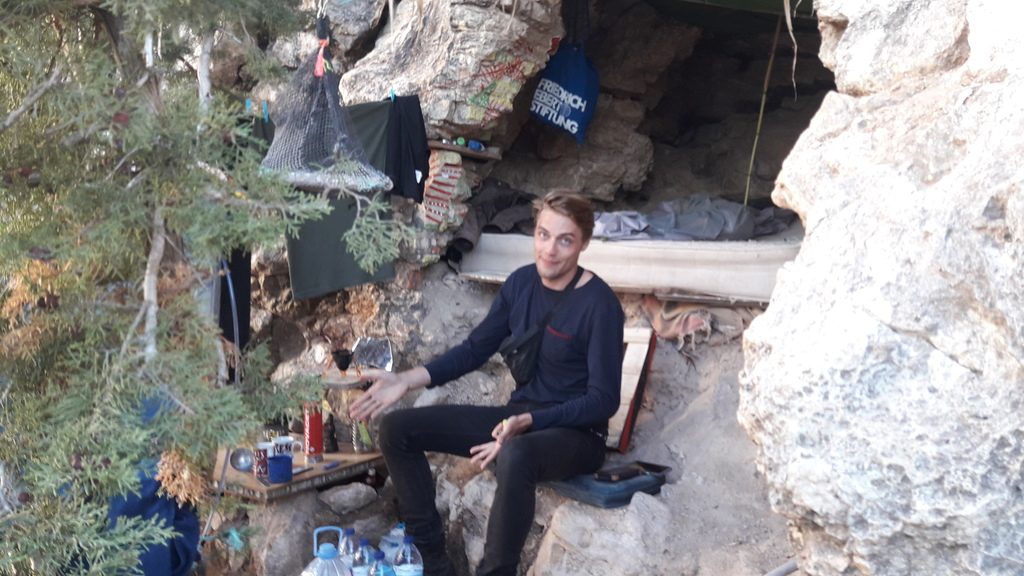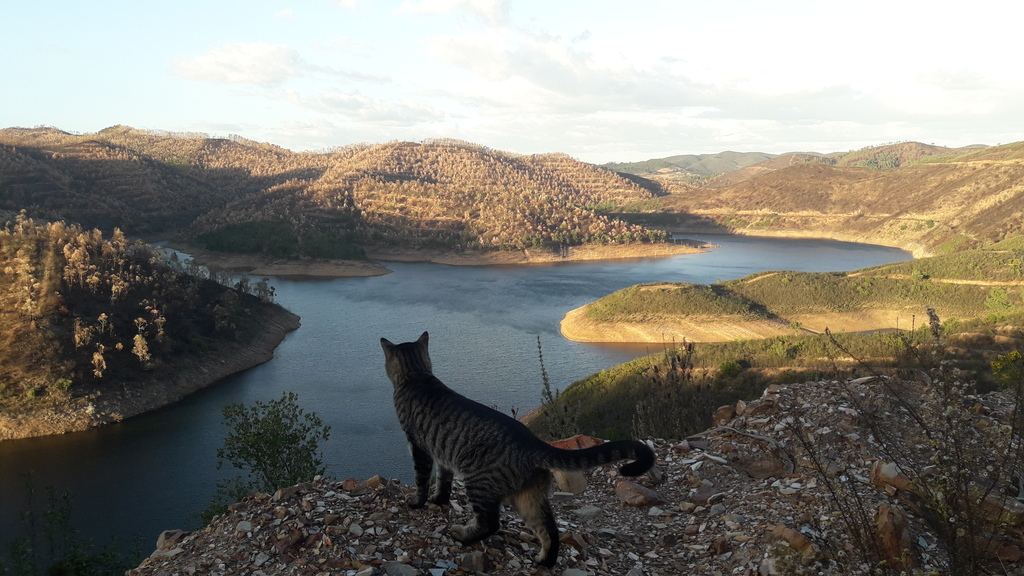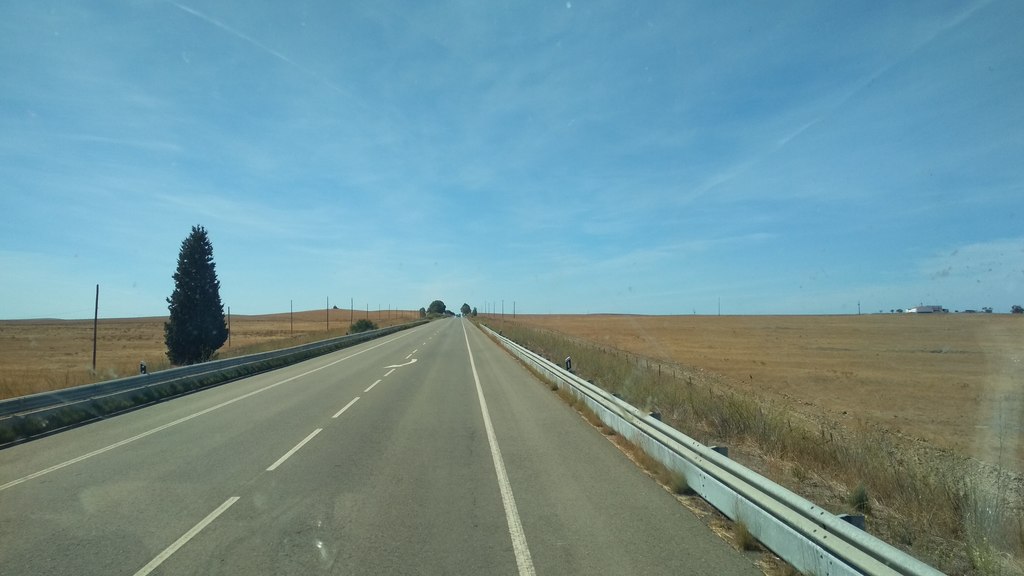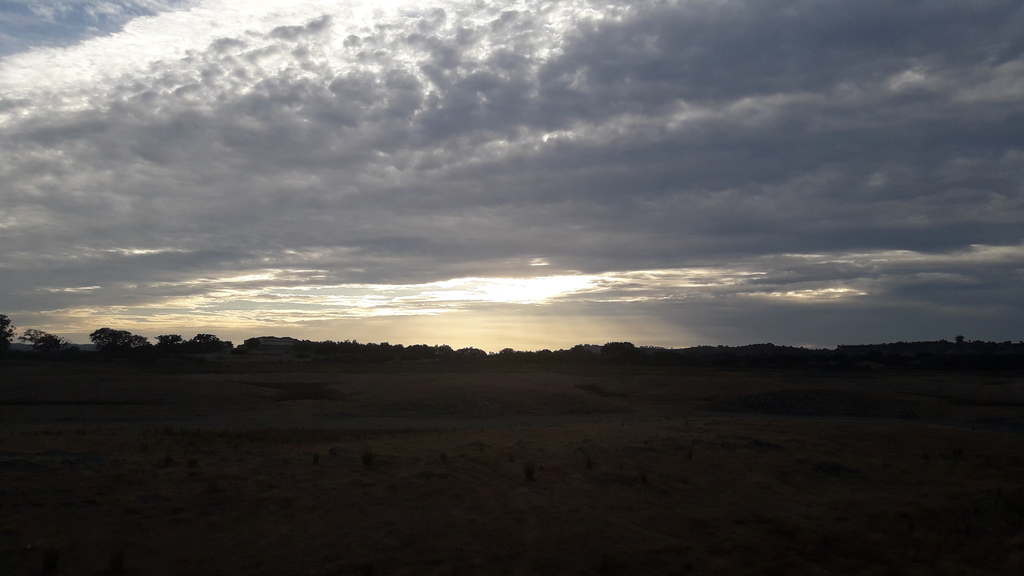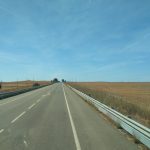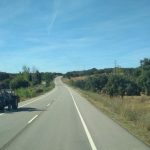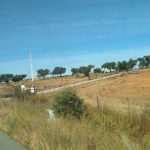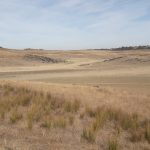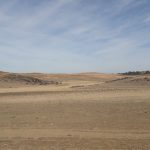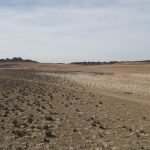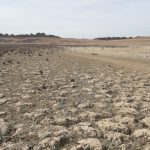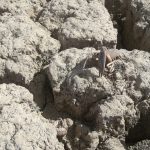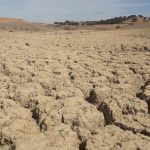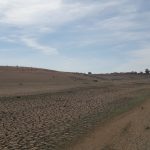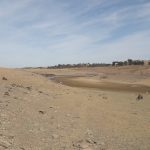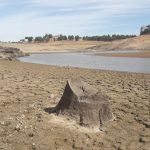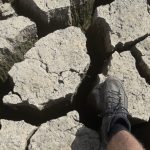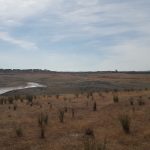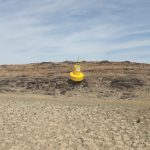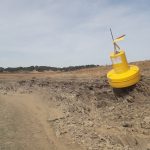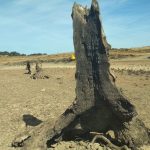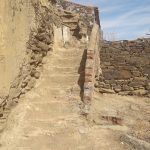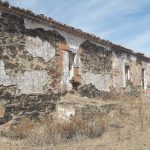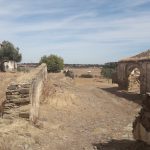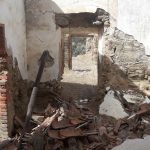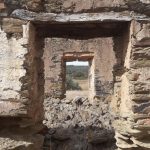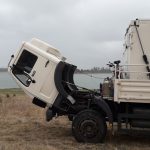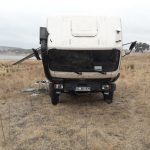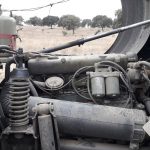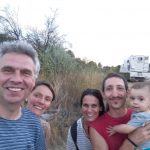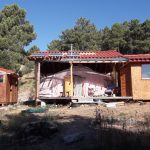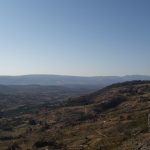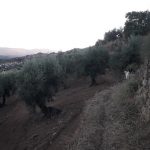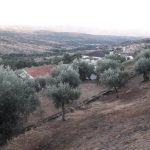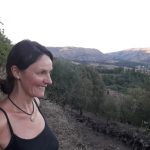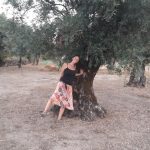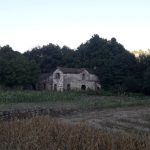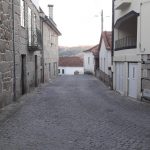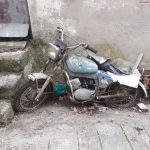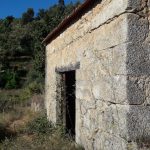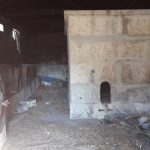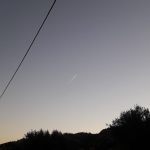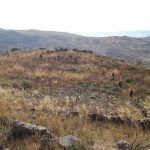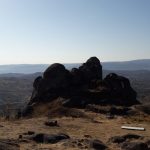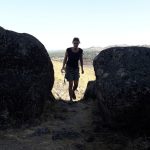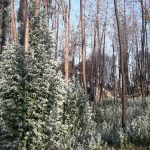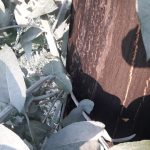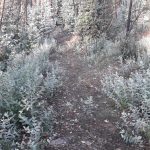How you can waste your energy by overriding personal responsibility instead of facing the biggest challenges of our times
My most important goal to go to Portugal was to find a community whose members were aware of the biggest men-made threats to mankind – nuclear war and climate change – and tried to find cultural solutions to avoid them. In my opinion, the reasons for these threats were material inequality, lack of democracy in the so called developed countries, lacking insight that climate change can only be stopped by a radical cut of burning fossil fuels and wars for fossil fuels as well as other important resources, which especially the industrial nations needed to rule the world economically and militarily. So, my minimum requirements for a community were: common land which is equally owned by the members of the community and measurements to reduce the use of fossil fuels radically, for instance, by self-sustainability, reducing living areas or avoidance of vehicles and other machines that are driven by fossil fuels.
Very early in my search for such an organisation I found a community in the Algarve, the most southern region of Portugal, which called itself vegan. Its territory was owned by an association of members who lived on the land. Each member had exactly the same share. One of the main goals was to protect the environment and promote self-sustainability. The members were committed to a vegan lifestyle according to the definition of veganism by the Vegan society.
Because we were crossing the country from north to south, the Algarve was last on our lists. Before we contacted the community, we changed our diet from basically vegetarian to vegan to find out if we could live such a lifestyle. During this process, I became aware of the influence of livestock on climate change. According to the International Panel on Climate Change (IPCC), animal based products are responsible for about 15 % of additional greenhouse gases, which in this case mainly is methane. So, I became convinced that veganism played an important role to reduce the causes for climate change.
Our first encounter with the residents of the community took place during a hike they offered for interested people who liked to join. The first residents we met where a couple, which I hereby call “Rachel” and Ross”, as well as another member, who I name “Monica”. She just recently joined the community. After they greeted us and some other interested visitors, we were led to the place of a resident that I name “Chandler”, where we had a vegan breakfast and where we could ask the members of the community questions. Monica mentioned that the community didn’t accept members who lived vegan on the territory but went out to eat a cutlet. Though it might be understandable from a radical vegan point of view, I had to swallow the first time, for what she said sounded a little bit totalitarian.
Nevertheless, Sylvia and I decided to stay a few days in order to get to know the community and its members more closely. We were invited to Chandler’s place for dinner. After we had eaten, the house-owner told me during a conversation about how they implement vegan living that he once had big problems with a Portuguese neighbour who used to let his cows graze on the land which the community bought five years ago. Chandler explained that he even had to shout at the man to get his cattle off their territory. Of course, it was his legal right to break unwritten Portuguese rules which didn’t comply to official laws. But knowing that not a single resident of the community was Portuguese or even spoke Portuguese, this behaviour was at least – putting it in a friendly way – not very diplomatic. And when I learned about German neighbours who were allowed to ride their horses on the land of the community, the whole subject had a little racist touch.
Another night, during a camp-fire at the spot of Rachel and Ross, I asked Ross what were, in his opinion, the biggest threats to mankind. I was curious because he owned a 4×4-car, a 4×4-truck and two motorcycles. He replied that burning fossil fuels were not the problem. We could go on driving cars with combustion engines without a bad conscience. The real problem were livestock products. I should watch the documentary “Cowspiracy”, which explained, why living vegan was the only way to stop climate change. I did not respond immediately and I did not watch the film afterwards, because you needed to pay for it. But I did read the study by the Worldwatch Institute (http://www.worldwatch.org/node/6294) on which the thesis of the documentary is based on. It claims that 51 percent of greenhouse gases are produced by livestock. Even if this figure were true, burning fossil fuels would still be a problem because it would be responsible for almost all of the remaining 49 percent. That was the first logical problem of Ross’s statement. But the logical problem become even bigger when you take a closer look at the study.
To understand what initially drives climate change in the view of the majority of climatologists, you need to know that it is caused by additional carbon in the chemically balanced cycle of oxidisation and photosynthesis. When a cow respires carbon dioxide, that was produced by oxidisation of carbon within the biomass its metabolism is proceeding, no carbon is added to the cycle because the biomass itself is a product of splitting the respired carbon dioxide by photosynthesis. This is simple chemistry you learn at school. Additional carbon mainly comes from burning fossil fuels, which were buried in the ground for millions of years. However, the main reason why the study by the Worldwatch Institute comes to its high figures of carbon dioxide produced by livestock is adding the respiration of the animals. The argument of its authors for doing so reads as follows: “More to the point, livestock (like automobiles) are a human invention and convenience, not part of pre-human times, and a molecule of CO2 exhaled by livestock is no more natural than one from an auto tailpipe.”
Well, that is simply not scientific work. It’s chemically and logically wrong. Using such a way of arguing, you could also claim water and oil were the same because they are both fluid at 20 degrees centigrade. No wonder their study is not acknowledged by the scientific world and only published in the “World Watch Magazine”, the dissemination media of the private Worldwatch Institute.
After getting that clear, I wanted to know if other members also believed this pseudo-science to enhance the importance of leaving vegan and to neglect the most obvious reasons for the biggest threats to mankind. So, I went to Monica’s spot, which was still in the beginning of being constructed. Sadly, she confirmed Ross’s opinion without mentioning any facts. She added that the vegan community was a kind of sanctuary for her because she was tired of arguing about veganism. When I replied that I was not attacking veganism when I pointed out that, from a scientific perspective, fossil fuels are much more responsible for climate change than livestock, she even claimed that science was just another religion. Later on, in a different context, she stated that reincarnation was a fact because a scientist that experienced a near-death situation once wrote a book about it.
Disappointed by the lack of knowledge about climate change as well as scientific methods, by the belief in biased studies, because it suits one’s lifestyle, and by the dogmatic views about being vegan of its members, we left the community for the nearby beach. When I told a guy whom I met there that this particular organisation only accepted members who lived strictly vegan even outside its territory, his first reaction was: “That’s dogmatic.”
But is it? I decided to give the whole subject a second thought. So, I looked up the community’s manifest again to find out if its principles were dogmatic or if I was just confronted with personal opinions of some of its members. Paragraph 2 reads: “All members (…) are committed to a vegan lifestyle according to the Vegan Society definition of veganism (https://www.vegansociety.com/go-vegan/definition-veganism).” When you follow the link, the basic definition of veganism by the Vegan society reads: “Veganism is a way of living which seeks to exclude, as far as is possible and practicable, all forms of exploitation of, and cruelty to, animals for food, clothing or any other purpose. There are many ways to embrace vegan living. Yet one thing all vegans have in common is a plant-based diet avoiding all animal foods such as meat (including fish, shellfish and insects), dairy, eggs and honey – as well as products like leather and any tested on animals.”
Having realized the importance of living vegan and having already changed my personal lifestyle, I tried to rephrase the manifest in order to make it less dogmatic. I could not find a better wording, because the constraints “as far as is possible and practicable” and “avoiding all animal foods” do not make the definition of veganism and thus the community’s manifest dogmatic in principle – as long as the decision to what extend anybody understands the words possible, practicable and avoiding is kept individual.
I made my peace with the manifest when I read the third paragraph: “Each member of the (…) community (…) gives their best effort to protect the environment and promote self-sustainability.” That was the point I was after. So, I regarded the second paragraph just as a detail of the the third, questioned myself, if I, in turn, was too dogmatic in not allowing other views on the manifest and its constraints of living vegan and went back to the community to help Monica building her spot on the land.
Everything went fine until one night I was guest at Rachel’s and Ross’s house again. Rachel asked me directly why I became vegan. I spoke my mind when I replied that my focus was on the survival of mankind as a species and on promoting a sustainable living. Thus, being vegan was just a consequence for me. From her reaction I noticed that she was not satisfied with my answer because she kept mentioning animal rights. During this discussion, that occurred to me like an interrogation, I felt quite awkward. When I added that I actually don’t mind what I eat, as long as I don’t feel hungry, she even became a little bit angry. I asked her if it was important to the community why someone would live vegan. Rachel confirmed and claimed that a member should respect animal rights because its focus was on being vegan. When her boyfriend Ross, who was following our discussion, immediately disagreed with her, since he became vegan because of his personal health, I realized what my basic problem with the community was and what being dogmatic meant. So, I told Rachel totally frankly that my biggest problem in joining the community was not the fact that people committed to a vegan lifestyle, but that I was afraid it would be too dogmatic to set up rules for others what real veganism meant. She replied: “If you were a real vegan, you wouldn’t think about this question.”
At that point, I did not understand the meaning of her answer, and we stopped talking about this particular subject. Later, when I was alone, I started thinking. I read the manifest and the definition of veganism by the Vegan society over and over again and tried to grasp what the point was that I was not satisfied with. After two days of thinking, it finally hit me.
When you decide to become vegan, you are in control why and to what extend you avoid animal products or exploit animals. For instance, when I was vegetarian, I sometimes liked to eat fish or shrimps. In very rare situations, I even tasted red meat. Nevertheless, I still defined myself as vegetarian. I ordered vegetarian food on aeroplanes and regularly avoided meat of any kind. And I still wanted to be in control of the exceptions I make, even after becoming vegan. But when you define a whole community as vegan, you need to be much more specific what being vegan meant and what not. You need to draw an exact line. If the residents I met and talked to took the manifest and the definition of veganism by the Vegan society literally, there wouldn’t be any discussions about true individual veganism. Every member would accept the personal definition of what is possible and practicable to avoid animal products of the other members. However, they don’t. Instead, at least Monica and Rachel focussed on the idea of a strictly vegan living community, and derived from that the right to define what’s true vegan and what’s not for others. Such behaviour to follow one’s interests is by definition dogmatic. Bringing it to the point, I phrased the question: Is this particular organisation a vegan community or a community of vegan living people?
With that question in mind, I went to the spot of Chandler, whom I had identified as the informal leader of the members who lived on the land, though there was a formal president. There were several reasons why I thought he owned that position within the community. His spot had been the first we had visited during our initial encounter. Later on, I had learned that his place was, compared to those of the other residents, quite advanced and that he was one of the first members who had not left the community after the “big fight” two or three years ago. Unfortunately, I had been unable to find out why more or less half of the members and even its founder had left the young, only five year old association, or had even been expelled.
When I entered Chandler’s greenhouse, which also worked as a kind of living room for him as well as his direct neighbours and the constant bunch of volunteers he occupied, he wasn’t there. Instead, I encountered another member that I just occasionally met before. She was rather new to the community and was still building her spot together with her boyfriend. I asked her if she thought the organisation resembled a vegan community or a community of vegan leaving people, and I explained what I meant by that. She intuitively replied it was a community of vegan leaving people. When I asked her why she was of that opinion, she explained a few examples. For instance, she still used her leather boots because she had bought them before she became more sensitized for a true vegan lifestyle. And she still used leather gloves because the synthetic ones were not strong enough to resist the sharp thorns of the blackberry bushes that covered almost all of Portugal. She also talked about another member who had built a yurt on her spot that contained wool from sheep.
I felt kind of relieved. Then Chandler entered the greenhouse. He was a quiet and calm guy in his thirties, a bit smaller than me with short hair. Every time we met, I noticed his absent and glancing gaze. I had the impression as if he was looking through me. As if he thought he knew more about me than I myself.
Interestingly, it was the member I talked to before who asked Chandler if the organisation were a vegan community or a community of vegan living people. To my disappointment, he immediately replied: “Both.”
I explained to him that it couldn’t be both. Either the members respect the individual interpretation of veganism of their fellow members, or they don’t. One single rule that restricts the individual approach towards veganism makes it a vegan community. Then I uttered that the latter was, in my opinion, dogmatic. I could observe that the term “dogmatic” triggered something within him. I noticed his upset state when he asked me why I thought veganism was dogmatic. It turned out that, for the rest of our discussion, he was incapable of grasping the point I made. Every time I tried to make clear that not veganism itself or the manifest of their community was dogmatic, but to define for others, what real veganism was, I could observe an empty and glancing look in his eyes. In this case, it definitely resembled lack of understanding.
He made very clear what the community meant to him. He used almost the same examples the other member used before, but he declared them as “exceptions”. As long as leather clothings were used before or were second hand, it was no problem to keep on using them until they break. The yurt was a big exception that was tolerated by the community in this particular case. In the future, “the community” would be more considerate about the materials new members build their homes with. Because I had the impression that the member I talked to before and that was still following our discussion was still buying leather gloves, I mentioned it to him. Timidly, she instantly interfered and firmly stated that she had bought them before joining the community. Her anxious reaction was more revealing than all the statements I had heard before. I started to realize that the discussion about what was truly vegan and what not was obviously one of the most important subjects within the community and that there were opinion leaders and fractions that were stronger than others.
Chandler admitted that his motivation for being vegan were animal rights and that people like him were the most rigorous vegans. He saw the community as a kind of sanctuary, because people like him were more or less prosecuted within our society. My way of arguing reminded him to someone who was not vegan or just at the beginning of being vegan. If I were a true vegan, I would understand what he meant. These were almost the same words Monica and Rachel had used before.
On my way back to the truck, I reminded myself that I was a trained social groupworker and that I should be able to make a diagnose of what was going on in the system of this community. Chandler, Rachel, Ross and Monica were obviously the key members. They were the ones who welcomed people that were interested to join. They used this occasion to define what interpretation of veganism and which exceptions were accepted within the community, though its public manifest was not that specific. They also organized informal meetings by inviting other members to camp-fires or by offering their living room for common dinners. Their attitude towards veganism was more or less the same. Three of them, Chandler, Rachel and Monica, were vegans for the reason of animal rights. At least two of them, Ross and Monica, denied current and broadly acknowledged scientific knowledge and rather believed a biased study of a single private institute, which is partly financed by the Bill & Melinda Gates Foundation, to increase the significance of veganism for stopping climate change.
However, these four were also competing for influence within the community. Because I spent a few days with Monica to build her spot, I learnt that she and Chandler were not talking to each other any more and that she and Ross had personal issues which led to the end of Ross’s support in helping her. So, in the end, I couldn’t say if these people abused the subject of defining real veganism to strengthen their position within the community or if they teamed up to enforce their definition of true veganism against other members and fractions, or both. Either way, I had to decide if I wanted to join an organisation, in which the key members focussed on the definition of real veganism and the reasons for becoming vegan – something I didn’t want to discuss at all because I was convinced that these matters were personal – instead of facing the biggest challenges of our times. In which at least two key members even denied scientific knowledge about climate change.
The next day, I went to Monica’s place to tell her that I would leave for the nearby beach to think again about my possible membership. When she asked what my doubts were, I frankly spoke about the reasons for my hesitation. As I told her that I sometimes used to eat fish, she laughed superiorly and said: “You are not even a real vegetarian, but an omnivore who rarely eats meat.”
Though I confirmed that I quit eating fish after becoming vegan, I could see how a drawer in her mind opened and I was dropped into it. I tried to put my point straight for the final time. I said that I was looking for a community where people were aware of the biggest threats of our times and tried to avoid burning fossil fuels.
„Then your truck fits perfectly into it“, she replied mockingly.
“That’s my point”, I returned. “I wouldn’t join a community, where other people tell me how much fossil energy I am supposed to use, but where each member is aware and responsible for reducing his amount of fossil fuels. By living on eight square metres, I already reduced heating energy by the factor 20 and by installing solar panels I am already using 100 % renewable energy for my electrical devices. I am looking for a community where I can go even further, for example, by self-sustainability. But I love individual freedom and rights. I don’t want to give up self-responsibility. I want to live in a better society, not in one that is worse. Nobody should rule over my personal live. I don’t want any rules where they are not necessary. Can’t you see that what you’re doing here is dynamite for a society? By interfering with personal rights and responsibilities you’re planting a seed that has the potential to turn into a dogma and that will blow up your community sometimes in the future.”
I saw the same glancing in her eyes that I noticed a day before when I talked to Chandler. When we parted she said that maybe I will come back to become a member when I had been vegan for a longer period. I doubt it.
